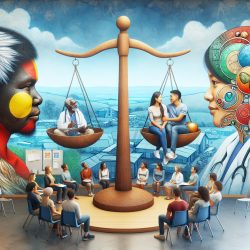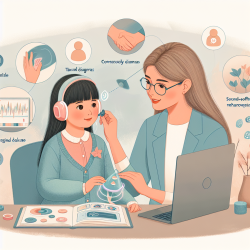Introduction
In today's rapidly evolving healthcare landscape, understanding the social determinants of health and the historical contexts that shape them is crucial. The research article "What all students in healthcare training programs should learn to increase health equity: perspectives on postcolonialism and the health of Aboriginal Peoples in Canada" offers invaluable insights into integrating postcolonial perspectives into healthcare education. This integration is not just an academic exercise; it is a necessary step toward achieving health equity, particularly for Aboriginal Peoples in Canada.
Understanding Postcolonialism in Healthcare
Postcolonialism provides a framework to understand how historical and ongoing colonial practices contribute to health inequities. It encourages healthcare practitioners to critically examine the power dynamics and cultural assumptions that influence healthcare delivery. By incorporating postcolonial perspectives, practitioners can better understand and address the unique health challenges faced by Aboriginal communities.
Key Findings from the Research
The study identified three primary themes for incorporating postcolonial content into healthcare training:
- Content to be Taught: Educators should include a foundational history of colonization, the ongoing impact of colonial structures, and the influence of privilege and oppression on healthcare practices.
- Delivery Methods: The content should be delivered through interactive teaching strategies, including case studies, experiential learning, and collaboration with Aboriginal partners.
- Importance of Teaching: Understanding postcolonialism is essential for increasing health equity and improving the quality of care for marginalized populations.
Implementing Postcolonial Perspectives in Practice
Healthcare practitioners can enhance their skills by integrating the following strategies:
- Engage in Continuous Learning: Seek out additional resources and training on postcolonial theory and its application in healthcare.
- Collaborate with Aboriginal Communities: Work alongside Aboriginal partners to develop culturally safe practices and curricula.
- Reflect on Personal Biases: Regularly assess and address personal biases and assumptions that may affect patient care.
Conclusion
Integrating postcolonial perspectives into healthcare education is a vital step toward achieving health equity. By understanding the historical and social contexts that shape health disparities, healthcare practitioners can provide more effective and culturally sensitive care. This approach not only benefits Aboriginal communities but also enhances the overall quality of healthcare delivery.
To read the original research paper, please follow this link: What all students in healthcare training programs should learn to increase health equity: perspectives on postcolonialism and the health of Aboriginal Peoples in Canada.










